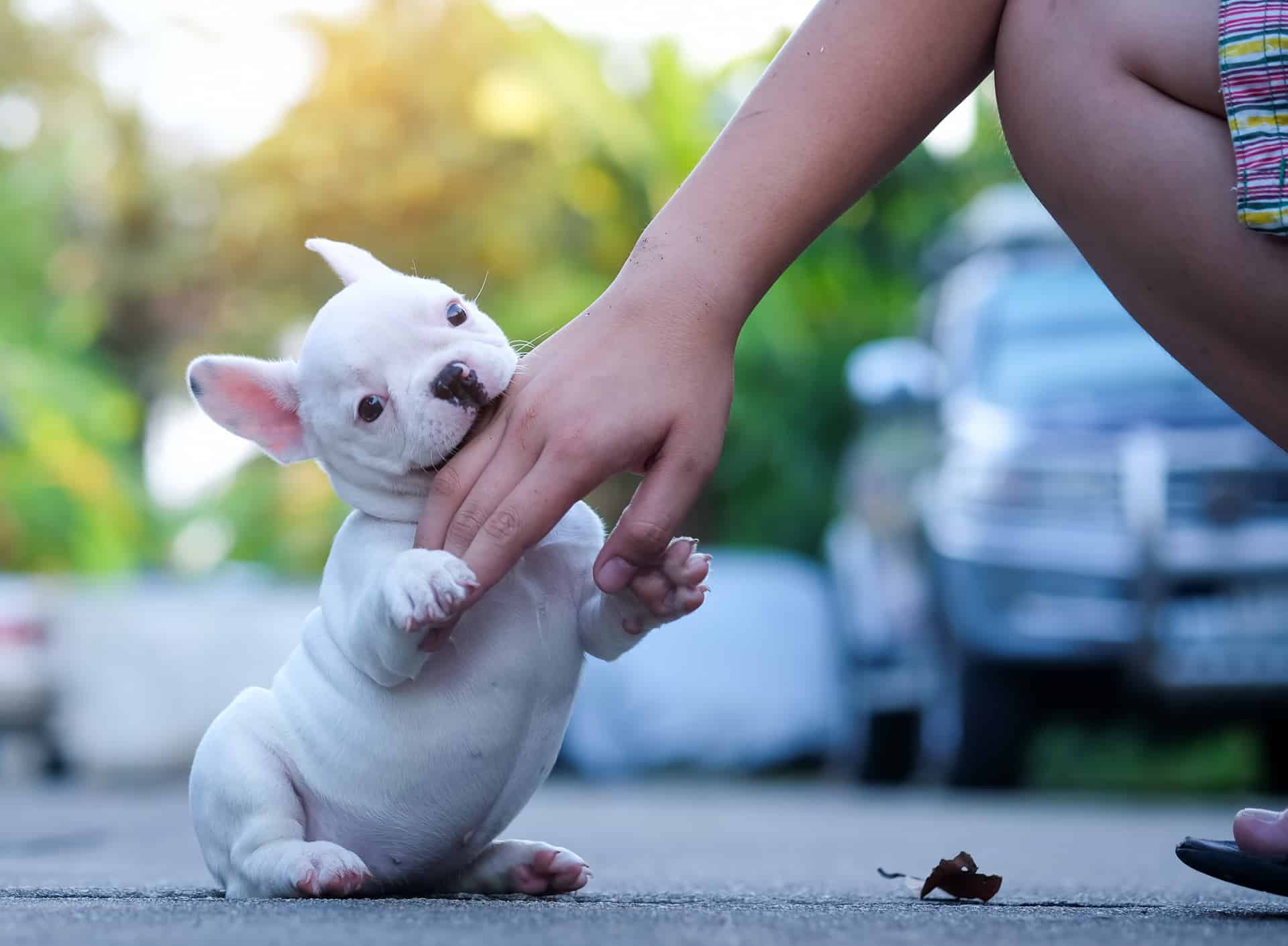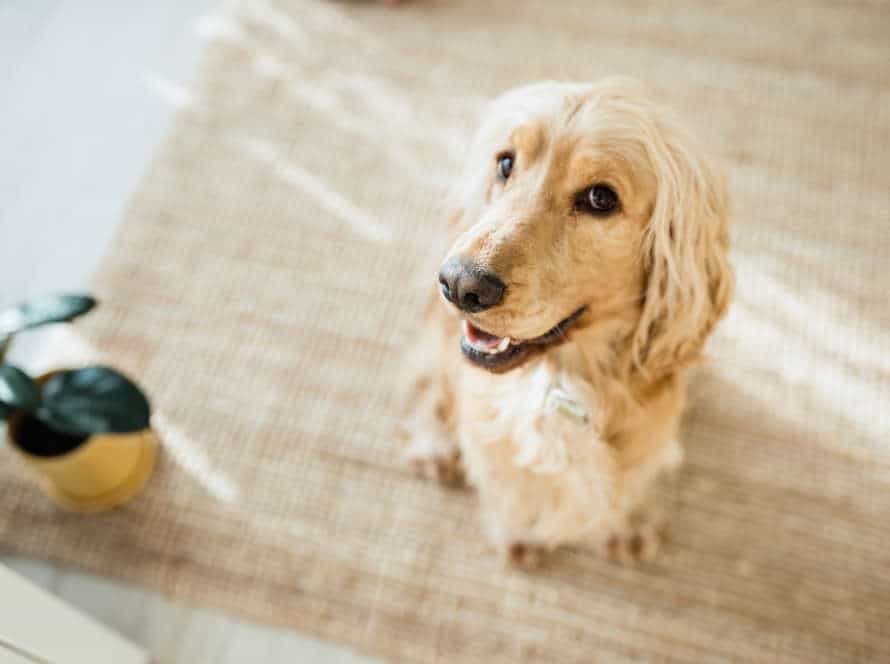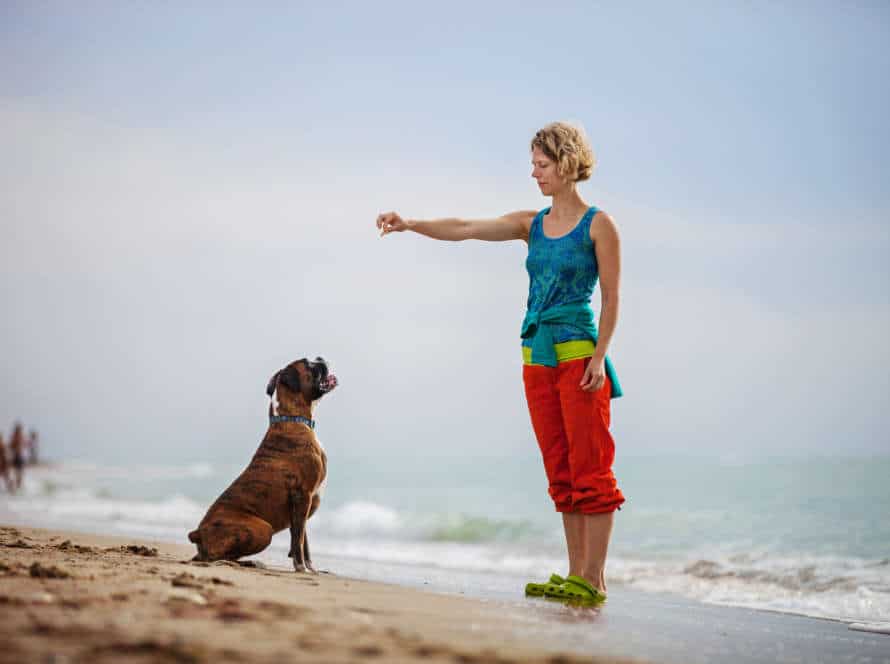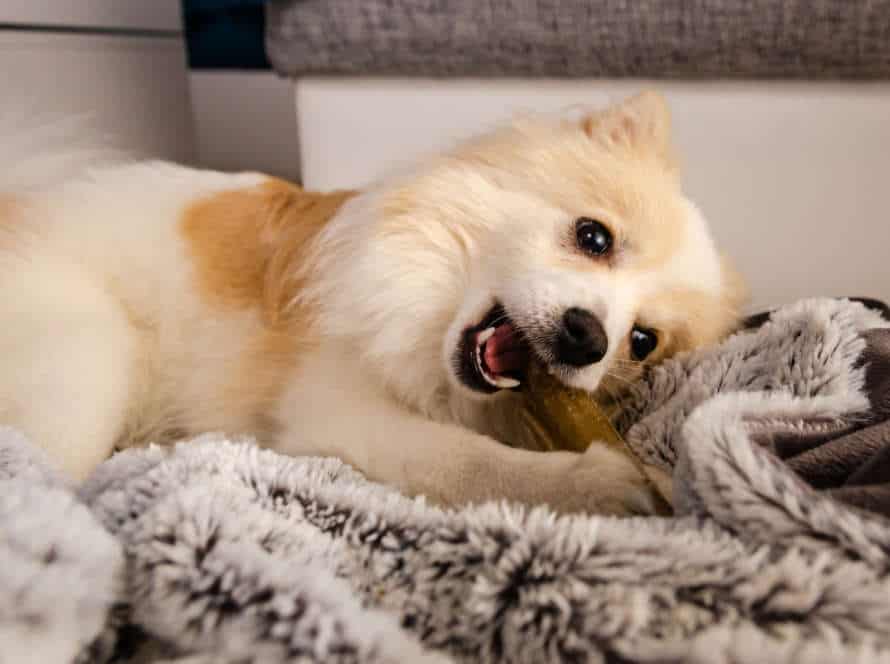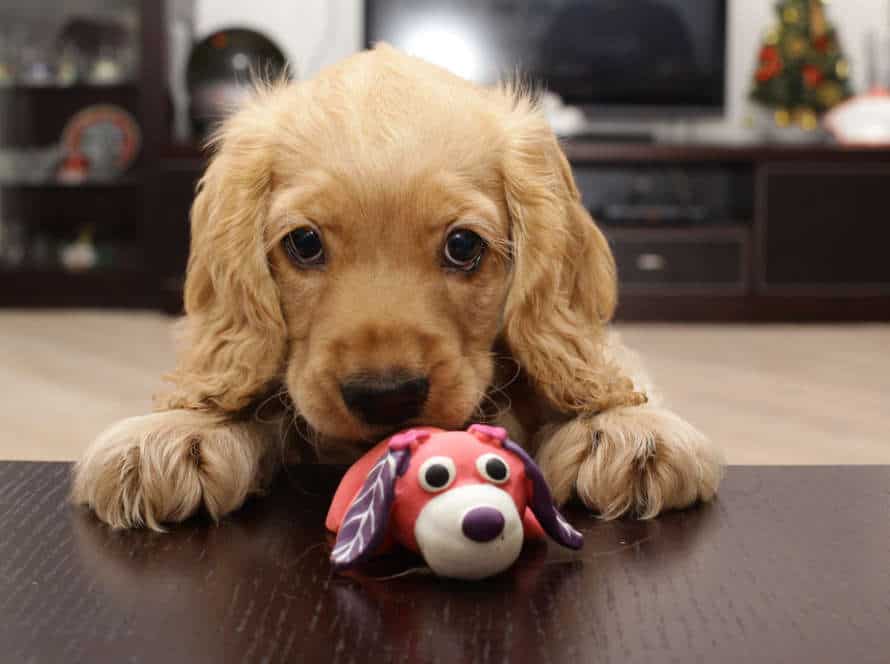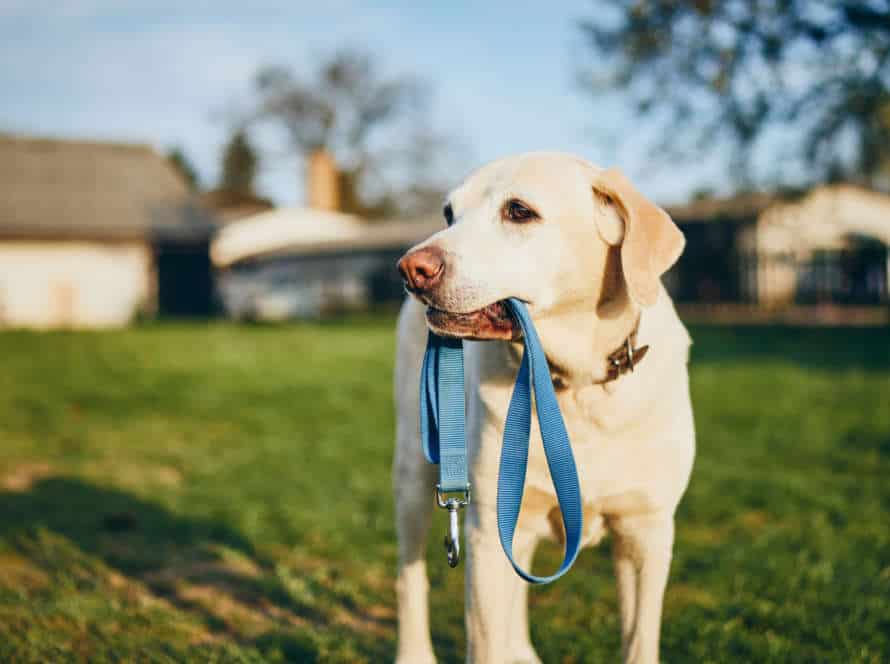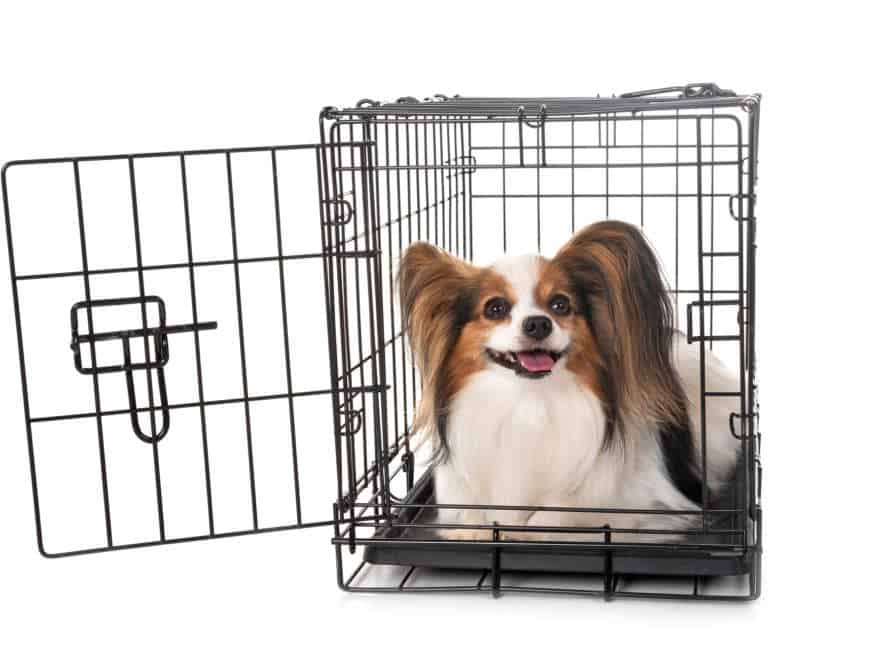Understanding Puppy Biting Setbacks
Puppy biting can be tough and disheartening. However, consistency and persistence are key to tackling any issues. To tackle this properly, you need to understand the behaviour behind it. Stick with it and you can help your pup learn that biting is not okay.
Acknowledge that setbacks are a normal part of the training process
Setbacks with puppy biting are just part of the training journey. As a pet owner, it’s best to take note of them, instead of getting frustrated or disheartened. Here are some tips:
- Be consistent with training methods, even if progress is slow.
- Use positive reinforcement to reward good behaviour and stop bad behaviour.
- Distract your puppy with appropriate toys and treats if they bite.
- Be patient and keep trying, as it may take some time for them to learn.
Pro tip – If you’re having problems training your pup, get advice from a professional dog trainer or behaviourist. They can give you individualised tips to help improve your pet’s behaviour.
Identify the causes of your puppy’s biting setbacks
Pups may bite as they explore and play. But, sometimes biting setbacks happen due to teething, boredom or anxiety. To handle these, be consistent and persistent with training methods. Here are some tips:
- Observe pup’s behavior – teething, stressed, bored?
- Provide teething toys, exercise and mental stimulation to help curb biting.
- Use positive reinforcement methods, like redirection and rewards, to encourage non-biting.
- Avoid physical punishment or shouting – this can hurt your pup’s trust.
With consistent training and patience, pup’s biting tendencies will lessen and they’ll be a well-behaved adult dog!
Keep track of when and where the setbacks occur
When raising a pup, it’s key to note when and where biting happens. This aids in managing it effectively.
Log or diary each biting incident. Include the time, location, and what happened before it.
Check for any patterns. Like what the pup likes or things that set it off.
Use the log to change your training, like playtime, exercise, or how you engage with pup during biting.
Be persistent and consistent. Setbacks may require more patience and repeating.
Pro tip: Puppy biting is natural and part of learning. Stay calm, use positive reinforcement, and be patient to help pup learn correct biting.
Consistency in Puppy Training
Consistency is key in puppy training to avoid and address biting issues. To be consistent, follow commands, make clear rewards and punishments, and repeat training. To stay consistent and persistent, here’s what you can do:
- Follow commands.
- Define rewards and punishments.
- Repeat training plan.
Stay calm and composed when your puppy is biting
Puppy biting can be an annoying and painful thing. So, it’s vital to stay calm and in control when your pup is biting. This will help you to keep up with the puppy training. Here are some tips to help you be consistent and persistent when tackling puppy biting issues:
- Have a consistent response: Use a firm voice and say “no” or “ouch” when they bite. Consistency is essential so your pup won’t get confused and know the boundaries.
- Change the biting: Give your puppy some suitable toys or chews to bite instead. This will teach them what they can and can’t bite.
- Take a break: If they still keep biting, take a break and ignore them for a few minutes. This will demonstrate that biting leads to no attention or playtime.
Be consistent and persistent in puppy training. By staying relaxed when your puppy is biting, you can promote good behavior and build a strong relationship with them.
Be consistent with your chosen training method
Consistency is essential when it comes to training your pup. Choosing one particular training method and adhering to it will help your pup learn more quickly. Here’s how:
- Select a training technique that functions best for you and your pup – be it positive reinforcement, clicker training, or using a certain word for each command.
- Always use the same tone and body language when you give a command or reward your pup.
- Be patient and tenacious with your pup’s training. It will take some time and repetition for your pup to learn and form new behavior patterns.
- Refrain from changing the rules or permitting certain activities one day and punishing them the next. This will only bring about bafflement and cause impediments in your pup’s training.
Don’t forget, consistency plays an important role in successful pup training. With patience, determination, and a concrete plan, you’ll be able to help your pup learn and develop into a content, well-mannered adult dog.
Use positive reinforcement to reward good behavior
Positive reinforcement is an awesome way to teach puppies good behaviors. It’s especially great for tackling biting. Here’s how to use it:
- Praise and reward your puppy with a treat or toy when they don’t bite.
- When they start biting, distract them with an appropriate toy or chew.
- Don’t use physical punishment or scolding. That could lead to fear and aggression.
- Be consistent. Reward good behavior, never reward biting.
- Patience and persistence will show your puppy that biting isn’t okay.
Persistence in Puppy Training
Puppy training is a must for your furry pal. You must be consistent and persistent in order to teach them. This will assist them in comprehending what is expected of them. Plus, it will also help with unwanted behaviors like puppy biting. Let’s take a look at why it’s crucial to stay consistent and persistent in puppy training.
Stick to a regular training schedule
Training a pup can be hard. But to succeed and persist, a regular training schedule is a must. Consistency is vital for fostering good behavior and correcting bad behavior in your pup. Here’s what to do:
- Set aside a specific time for training each day.
- When pup is alert, wide-awake, and not too thrilled.
- Make each session short, up to 15 minutes only and focus on one command or behavior.
Be patient and consistent, using positive reinforcement. Praise pup when he responds to your commands.
Keep a record of pup’s progress. Track successes and failures, and adjust training schedule as needed.
Remember, persistence is key to successful puppy training. Especially when handling biting setbacks. So be patient, stay consistent, and don’t give up!
Don’t give up after one setback
Puppy biting is a common issue new pet owners come across during pup training. Don’t be disheartened by a setback! Here are some tips to help:
- Realize that puppy biting is natural and can be remedied with patience and perseverance.
- Give your pup appropriate chew toys to distract them from biting you or anyone else.
- Use positive reinforcement such as reward and compliments to encourage good behaviour and avoid biting.
- Be consistent in your training, despite slow progress.
- If you need extra help, seek professional assistance.
- Don’t forget, with consistency and patience, your pup will eventually learn to not bite and become a well-behaved adult dog.
Seek professional help if needed
Puppy biting is an issue that takes persistence to overcome. Seeking professional help may be the best way to ensure your puppy gets the right training.
When looking for help, there are several things to think about:
- Qualifications? Make sure the trainer has the right experience to handle puppy biting.
- Methods? Choose a trainer that uses positive reinforcement and avoids punishment-based techniques.
- References? Ask for references and read reviews from past clients.
Getting help isn’t a failure, it’s a way to give your puppy the best training. With persistence and guidance, your puppy can learn to stop biting and be a happy companion.
Reinforcing Good Behavior
Raising puppies? Consistency is key! Always remember to be persistent and consistent in training. Reward good behavior, and ignore the bad.
Here are some tips to stay consistent and persistent when dealing with puppy biting problems:
- Take a step back.
- Reward the good.
- Ignoring the bad.
- Repeat this process.
Use chew toys as a distraction from biting
Text:
Puppy biting can be hard to handle. Chew toys are a great distraction, to help your pup stay on track. Here’s how to handle puppy biting:
- When your pup starts biting, redirect their attention to a chew toy.
- Firmly say “no” and reward good behavior with praise or treats.
- Stay consistent – don’t use physical punishment or negative reinforcement.
- Remember, it might take weeks or months to train out of this behavior.
Pro Tip: Freeze chew toys in water or broth. It’ll keep your pup entertained and soothe their teething discomfort!
Teach your puppy basic obedience commands, such as “sit” and “stay”
Teaching your pup is essential. Two commands to teach are “sit” and “stay.” Tips for teaching:
- Use positive reinforcement, like treats, praise, and toys.
- Be consistent. Use same commands.
- Use hand signals or physical cues too.
- Keep sessions short and frequent.
- Stay persistent. Don’t give up if progress is slow.
With patience and consistency, pup will learn to obey.
Use time-outs as a consequence for biting
Puppy owners often face the issue of biting. Time-outs can help, as a consequence for this behavior. This means taking the pup away from playtime for a brief period. To do this:
- Say “ouch” in a firm voice, when the pup bites.
- Stop interacting with them.
- Put them in a designated area, like a crate or a gated area.
- Leave them there for 30-60 seconds.
- Let them out and resume activities.
To reinforce good behavior and reduce biting, consistency and patience are essential. With time, your pup will understand that biting is not okay.
Avoiding Biting Triggers
Puppy biting can be tough to tackle. But, with consistency and persistence, you can do it! To manage the behavior, first figure out what triggers the biting. Avoiding or managing those triggers can set the stage for reducing the biting. Here are some ideas for handling biting triggers:
Avoid rough play
When it comes to handling puppy biting, avoiding rough play is essential. Puppies bite to explore and learn. It’s important to encourage them to bite toys instead of humans. Here are some ways to avoid rough play:
- Don’t wrestle or play tug-of-war.
- Use positive reinforcement and reward them for good behavior.
- Provide chew toys and interactive games.
- Be consistent in your training.
With patience and persistence, you’ll have a loving and well-behaved companion.
Don’t encourage your puppy to bite your hands or clothing
Puppies biting may seem fun, but it can be dangerous as they grow. Here are tips to avoid triggers:
- Give toys to redirect biting away from hands and clothing.
- Say “no” firmly if pup bites – don’t shout.
- Be consistent with strategies. Reward good behavior, don’t encourage bad.
- No aggressive play – it may encourage biting.
Be aware of your puppy’s body language and signals that biting may occur
Pups are known for nipping. Even though it’s expected, it could cause pain. So, be aware of pup body language and warnings that biting might happen.
Here are typical things that lead to puppy biting and how to prevent them:
- Excitement: Pups get over-excited during play. Calm play is important. Give them toys, not hands.
- Fear or worry: Pups may bite if they’re scared or anxious. Keep them away from nerve-racking situations and give them a relaxed environment.
- Pain or irritation: Pups may bite if they’re sick or in discomfort. Look out for changes and get vet help if needed.
With the right training and socialization, you can keep puppy biting away. This helps your pup stay healthy and happy!
Frequently Asked Questions
Q: Why does my puppy keep biting me?
A: Puppies explore the world with their mouths and biting is a natural behavior. They may also be teething and looking for relief. However, it’s important to teach your puppy that biting humans is not acceptable behavior.
Q: How can I stop my puppy from biting?
A: Consistency and persistence are key. Offer plenty of appropriate chew toys and redirect your puppy’s biting behavior onto those toys. Use a firm “no” and stop playing with your puppy every time they bite you. Reward your puppy when they stop biting and redirect their behavior onto a toy.
Q: Does it get better as my puppy gets older?
A: Yes, with proper training and consistency, your puppy will learn that biting humans is not acceptable behavior. It may take some time, but as your puppy gets older and learns what is expected of them, biting behavior should diminish.
Q: What if my puppy keeps biting even after redirection?
A: If your puppy continues to bite even after redirection, it’s important to seek the help of a professional trainer or behaviorist. They can help address any underlying issues and develop a training plan specific to your puppy’s individual needs.
Q: My puppy only bites certain people. Why is this?
A: Your puppy may be more comfortable with certain people or may see them as playmates. It’s important to teach your puppy that biting any human is not acceptable behavior, regardless of their relationship or comfort level with that person.
Q: How can I stay consistent with training when others interact with my puppy?
A: It’s important to communicate with all members of your household, as well as anyone who may interact with your puppy, about the training plan and expectations for behavior. Consistency among all interactions with your puppy will reinforce proper behavior and reduce confusion.

